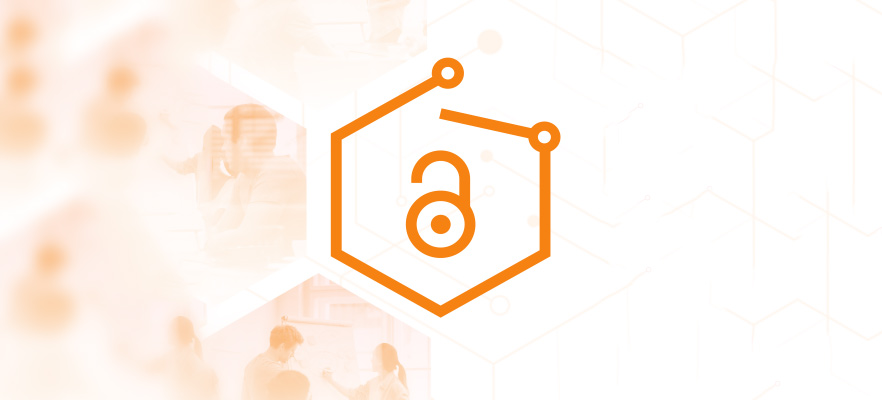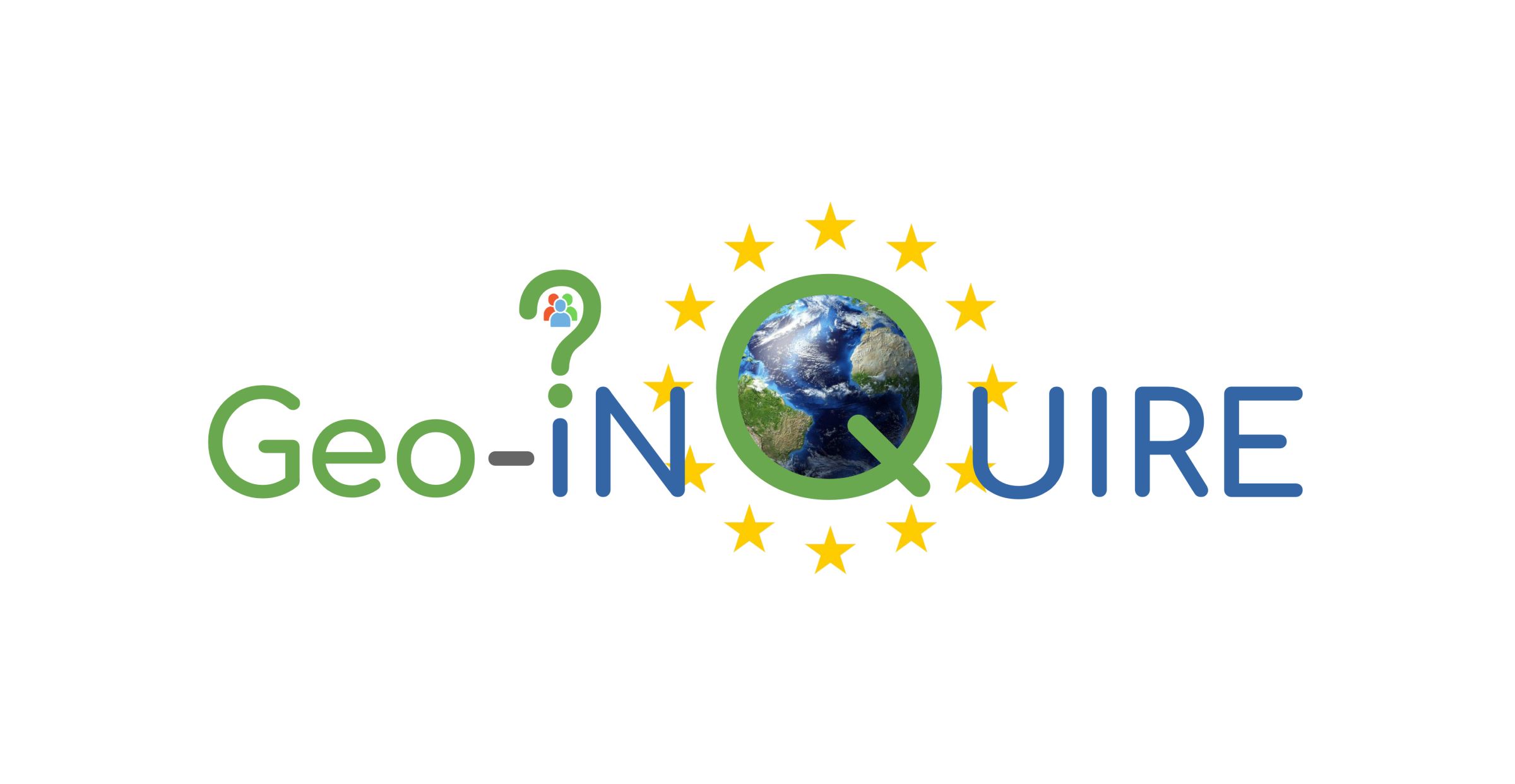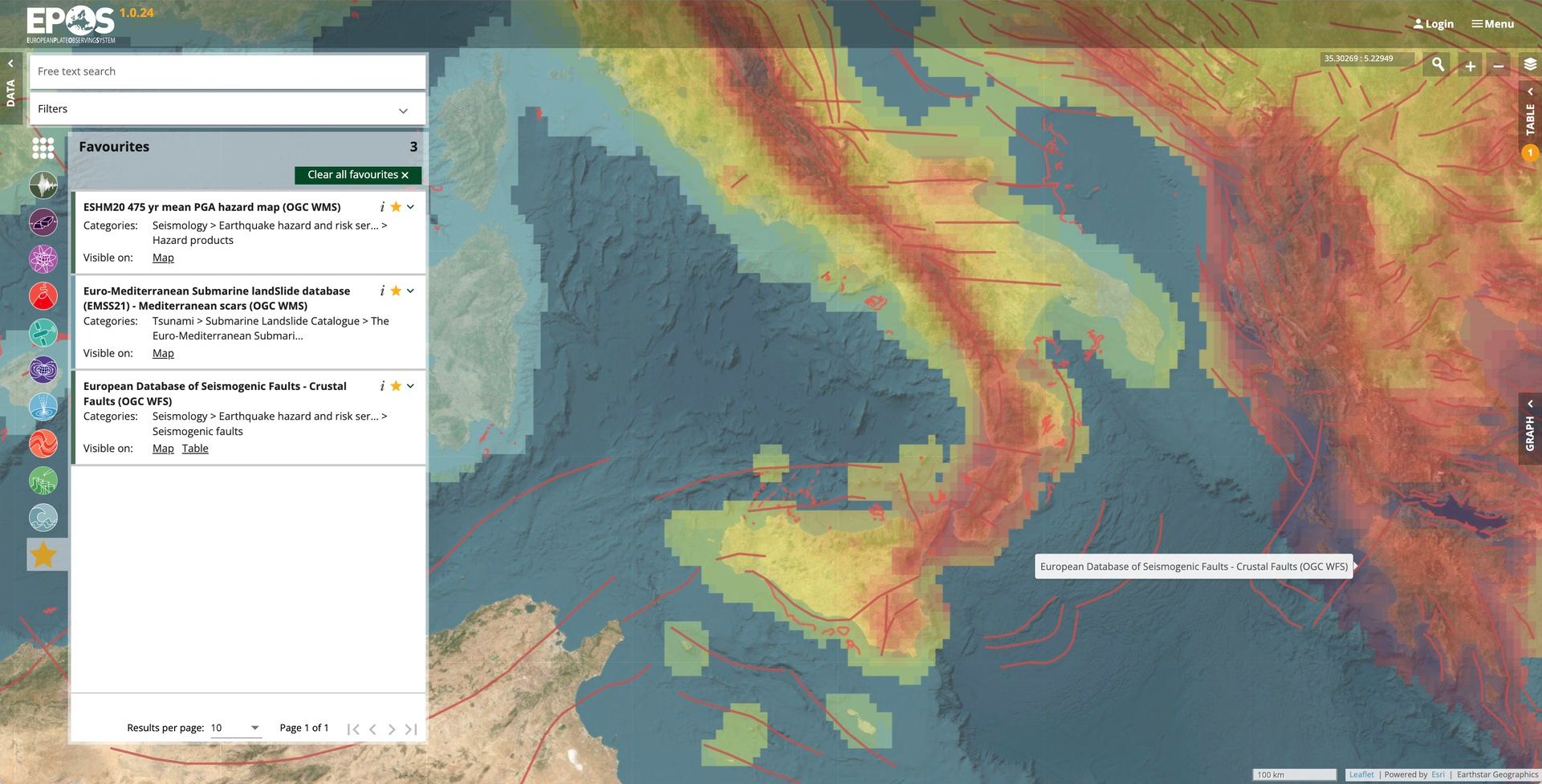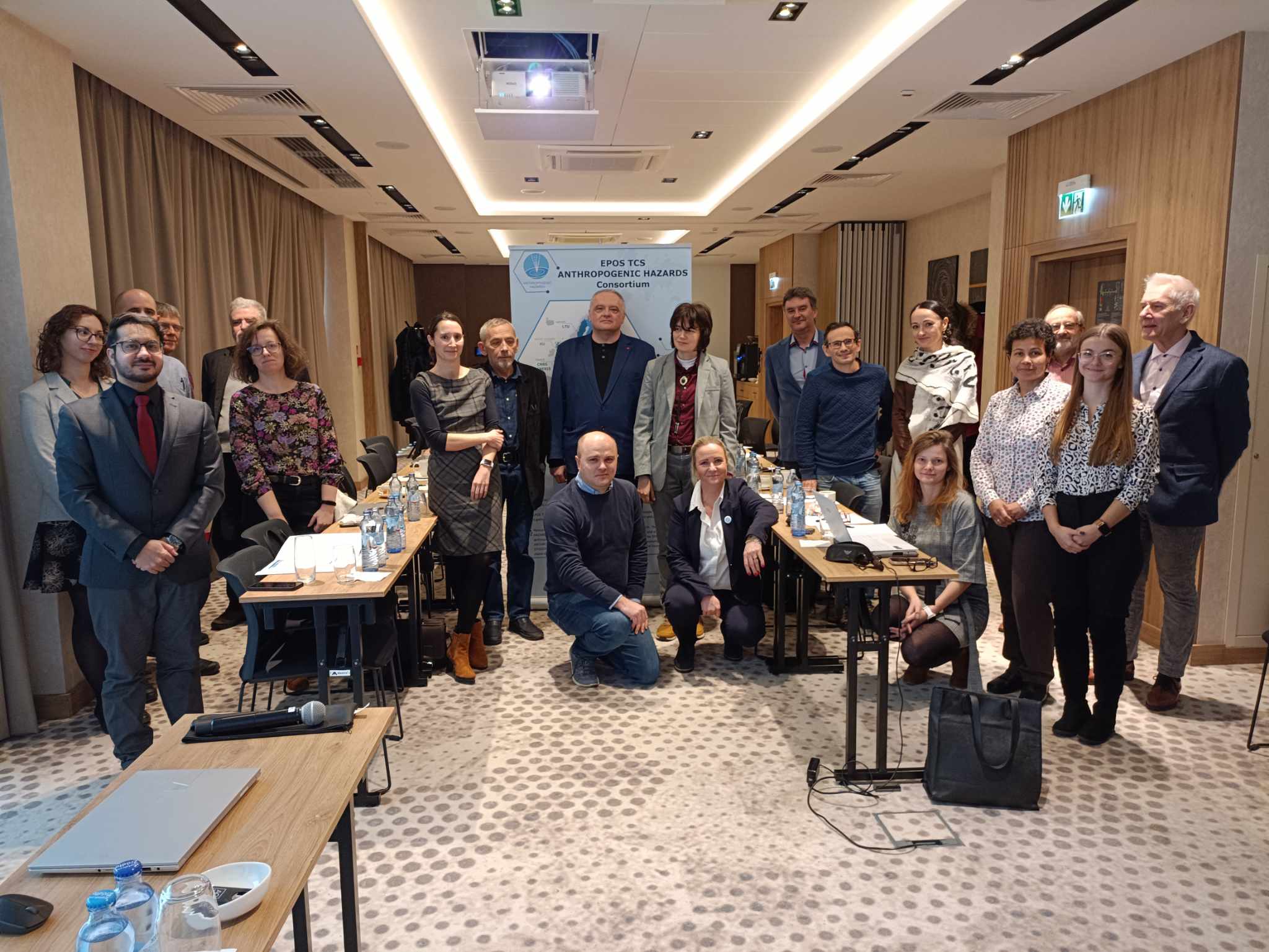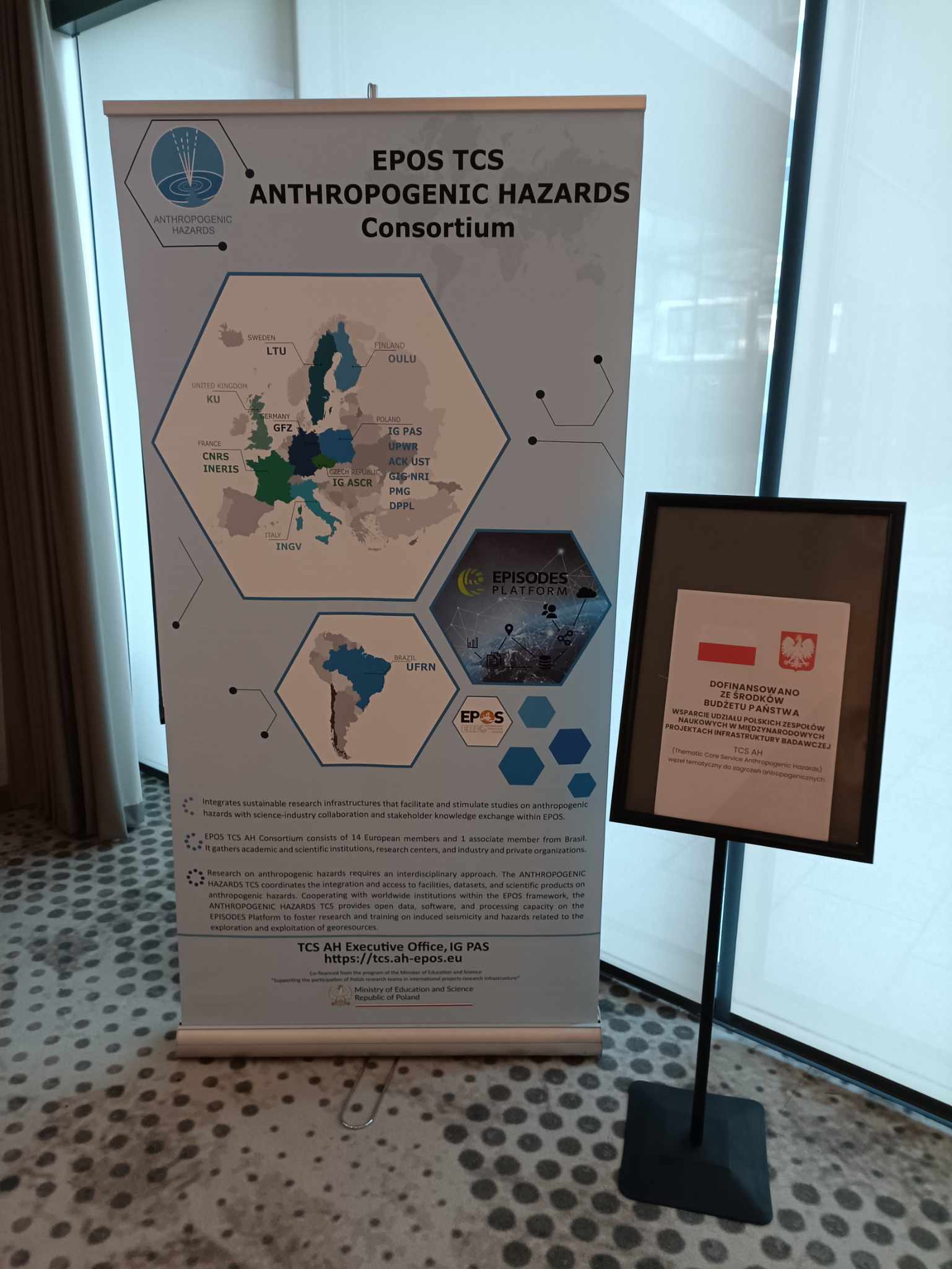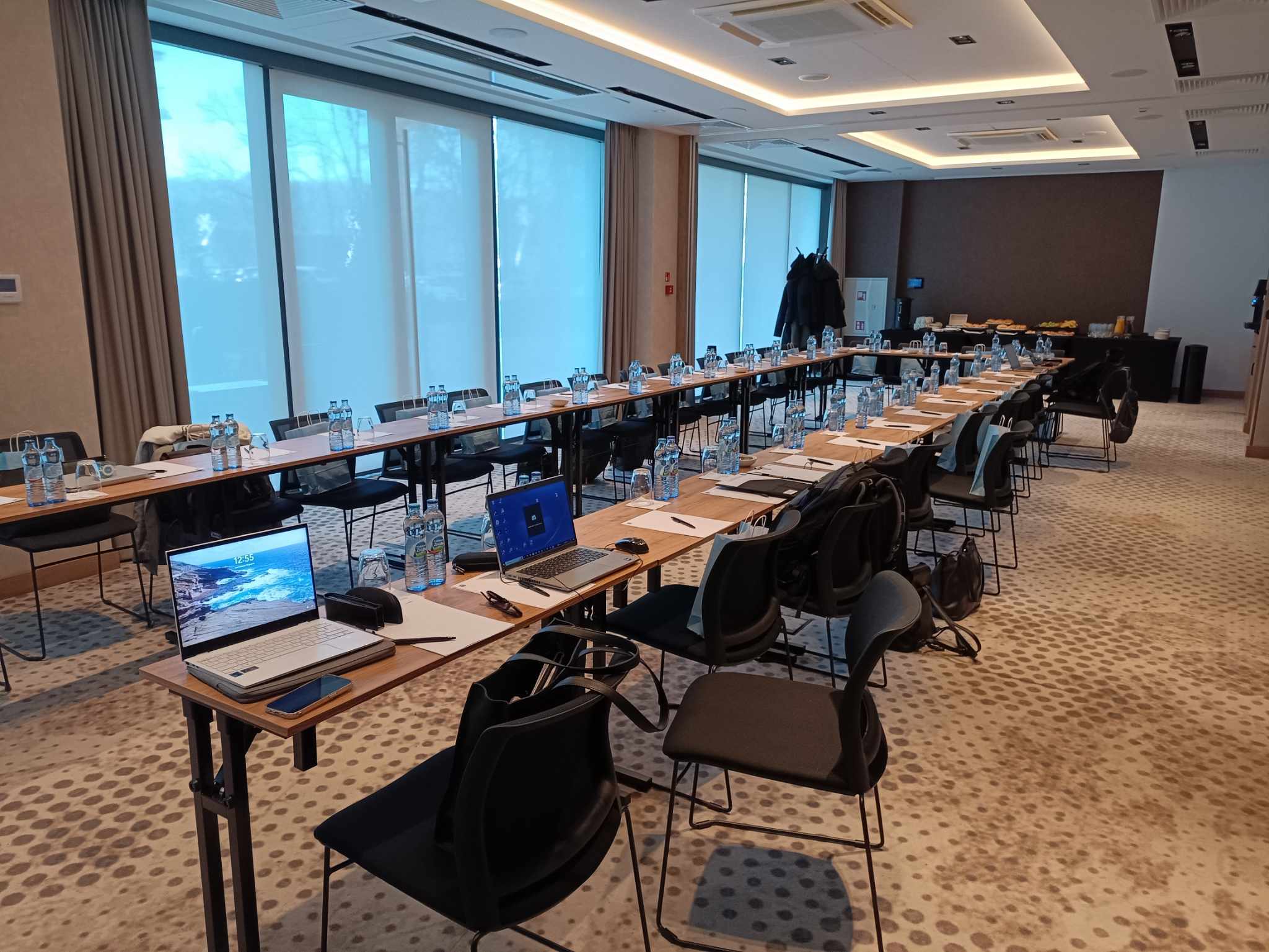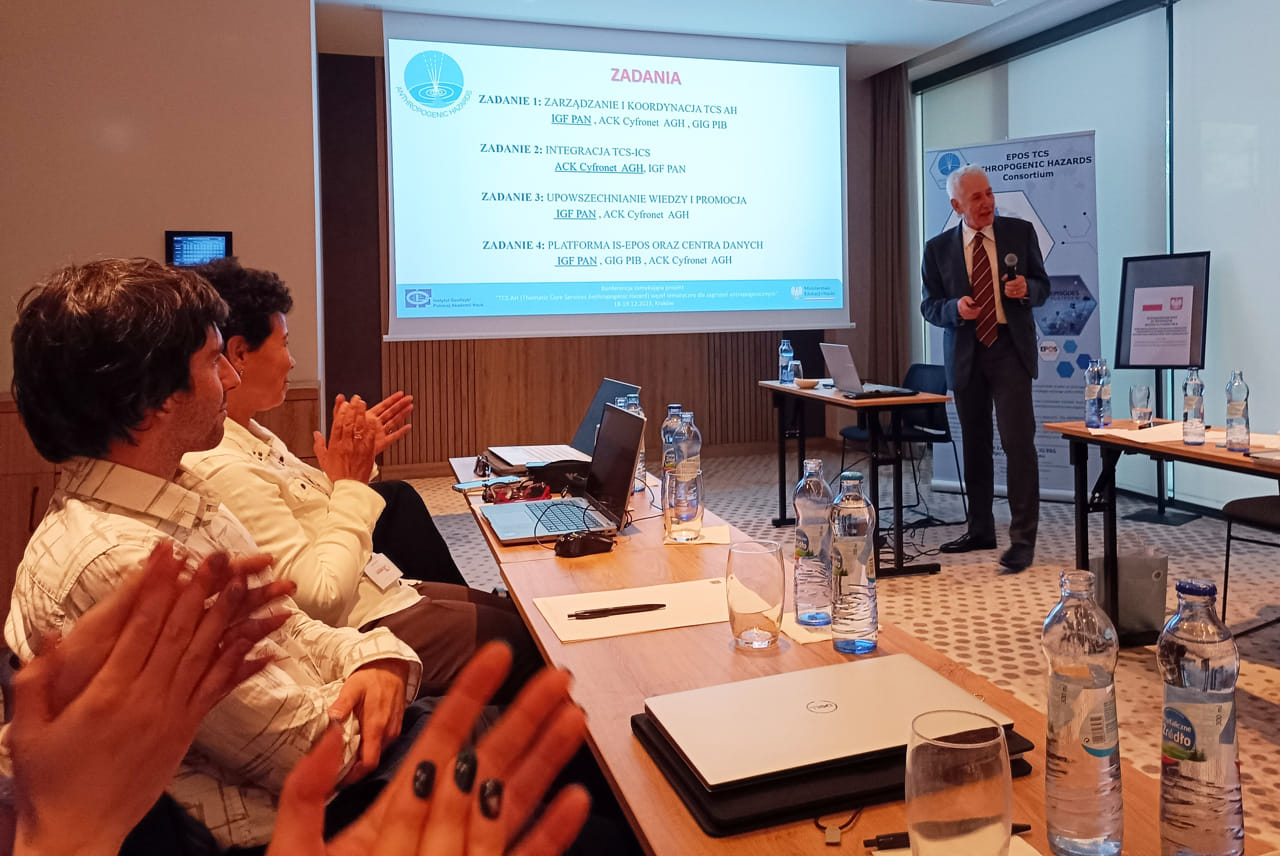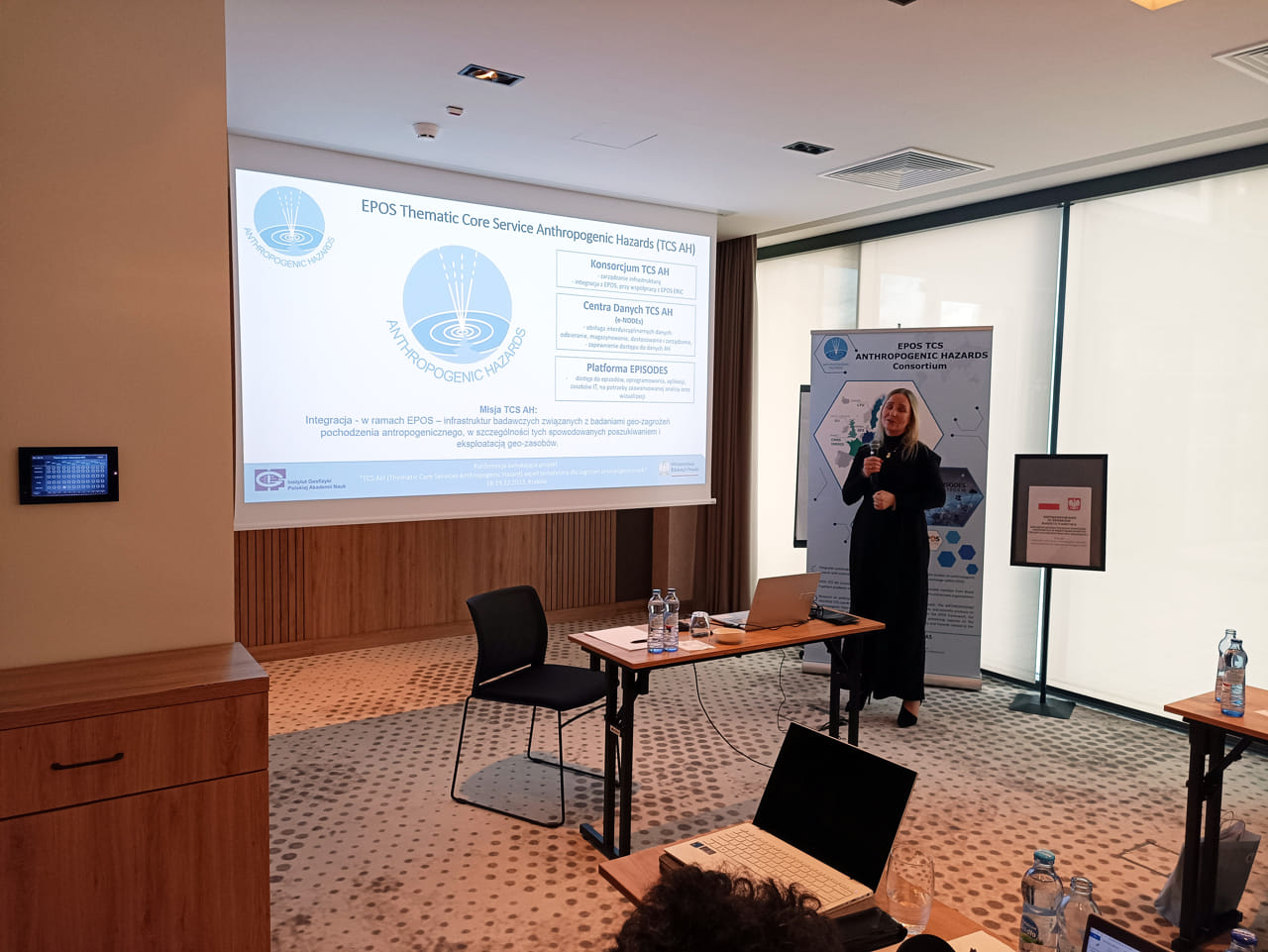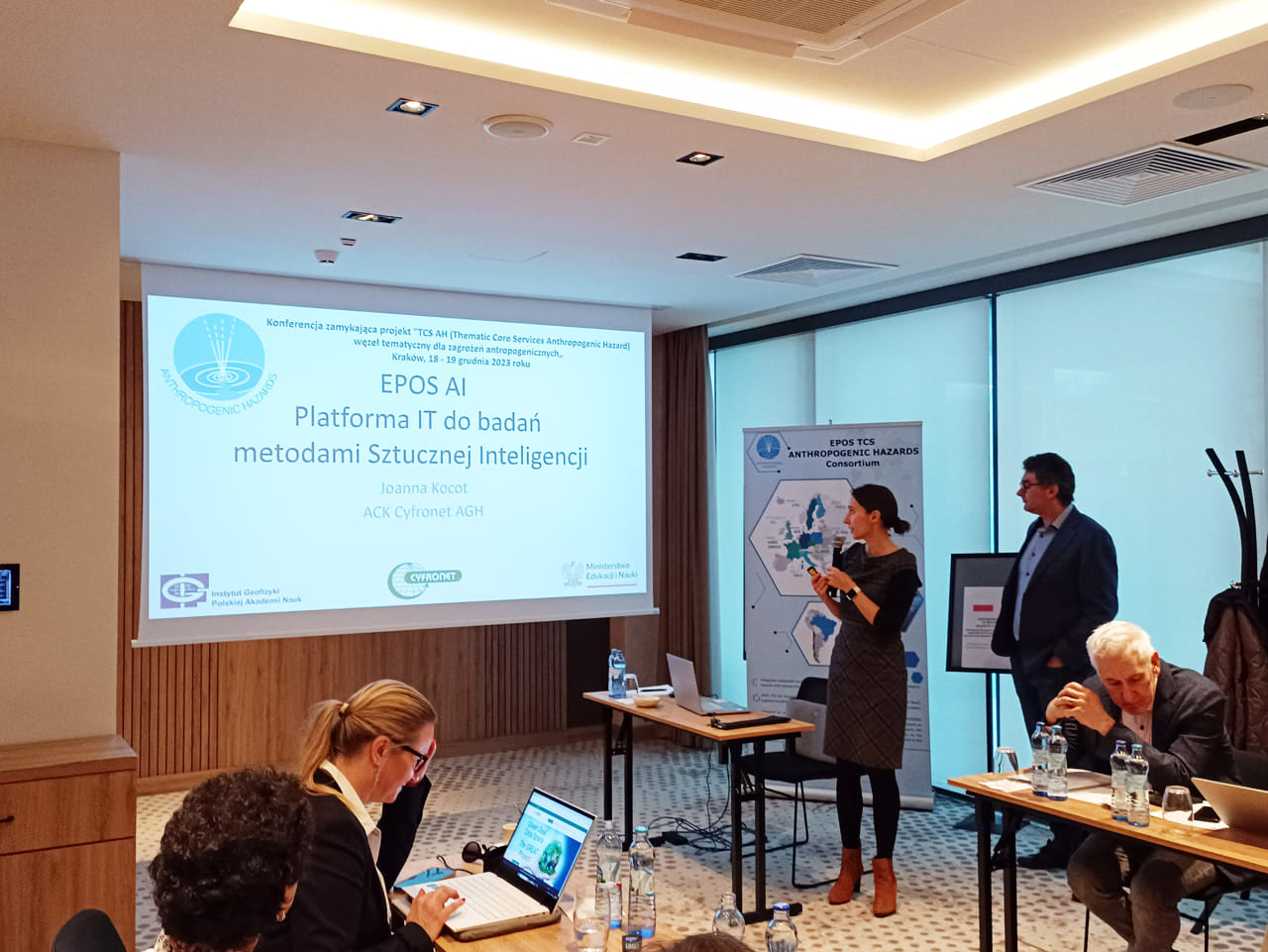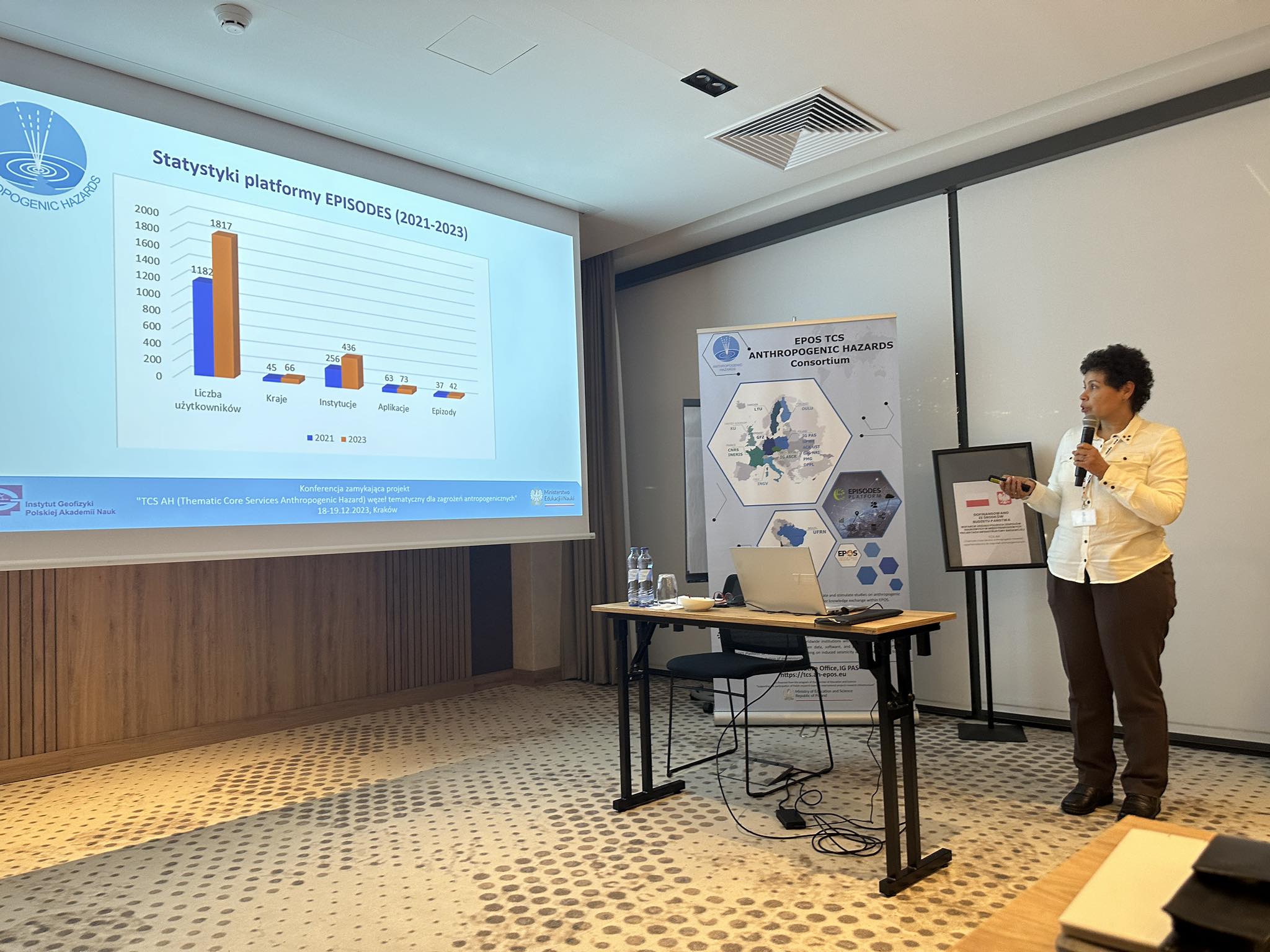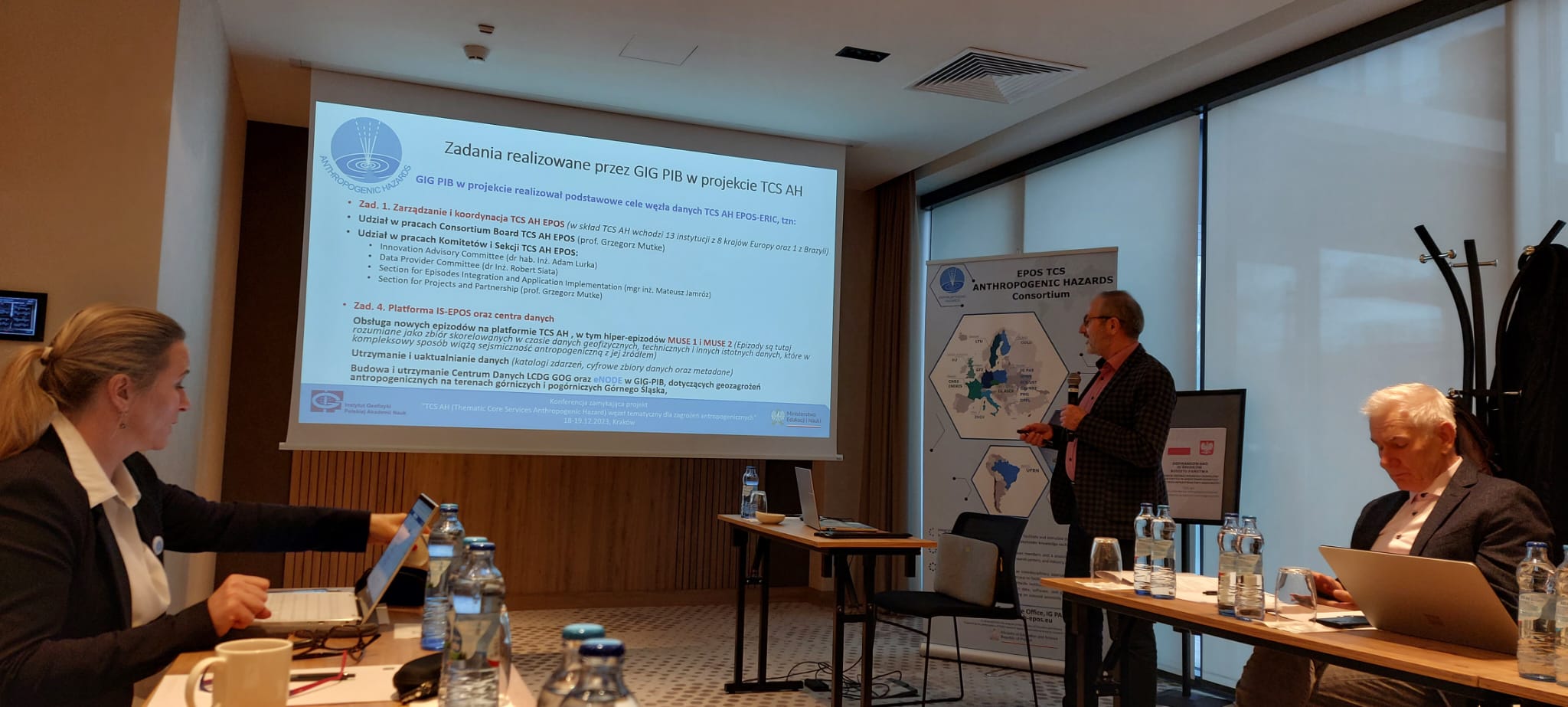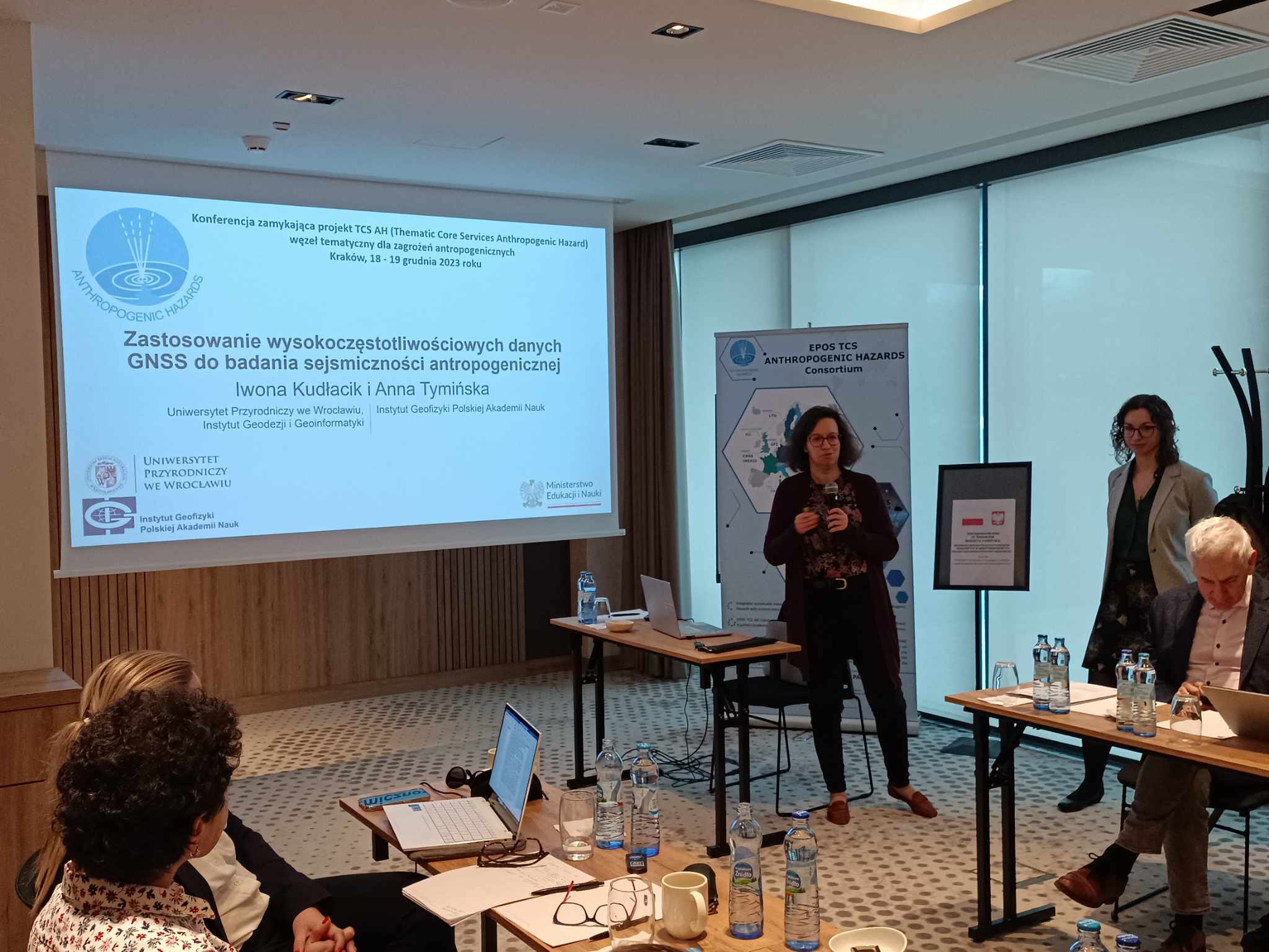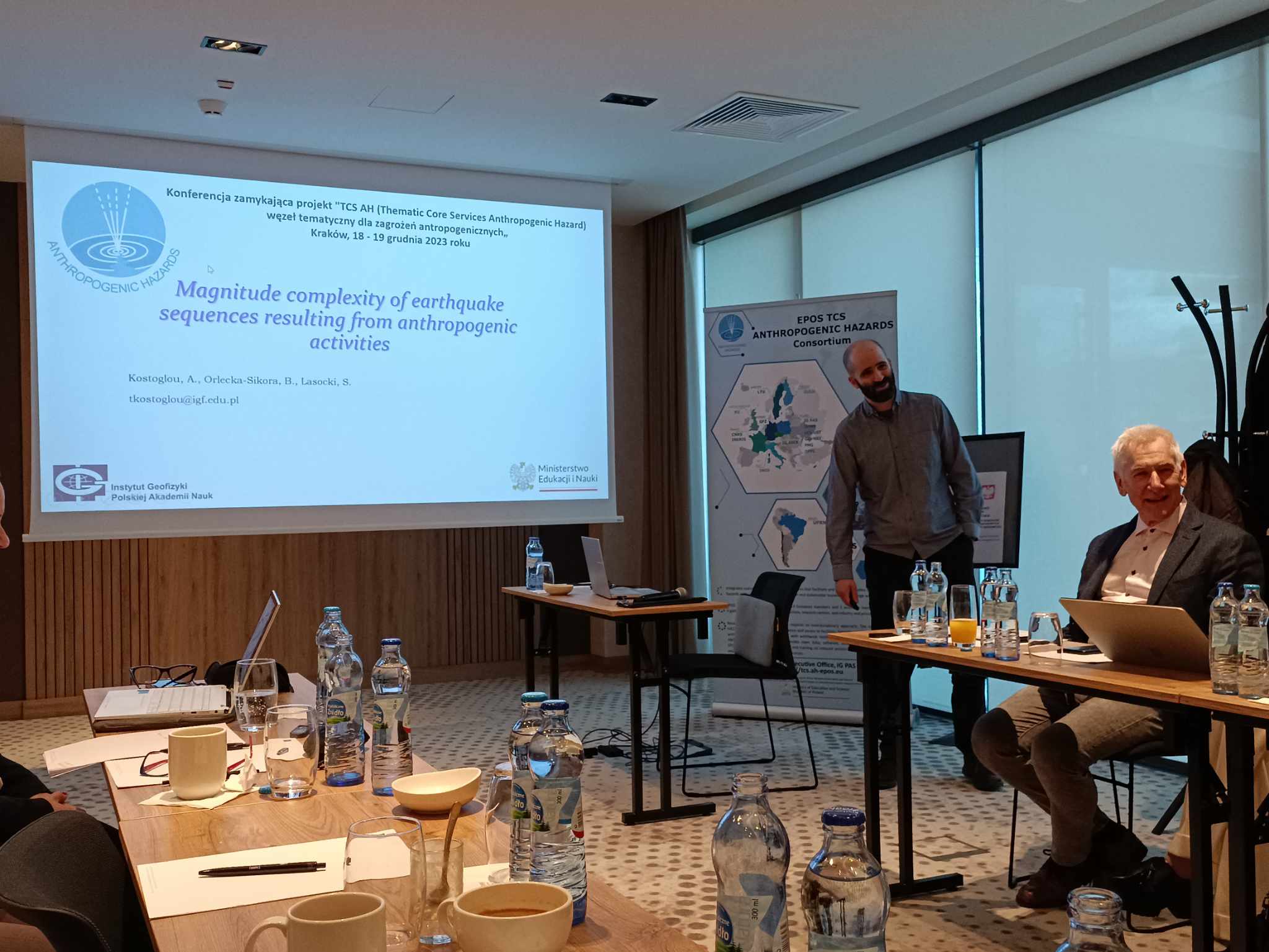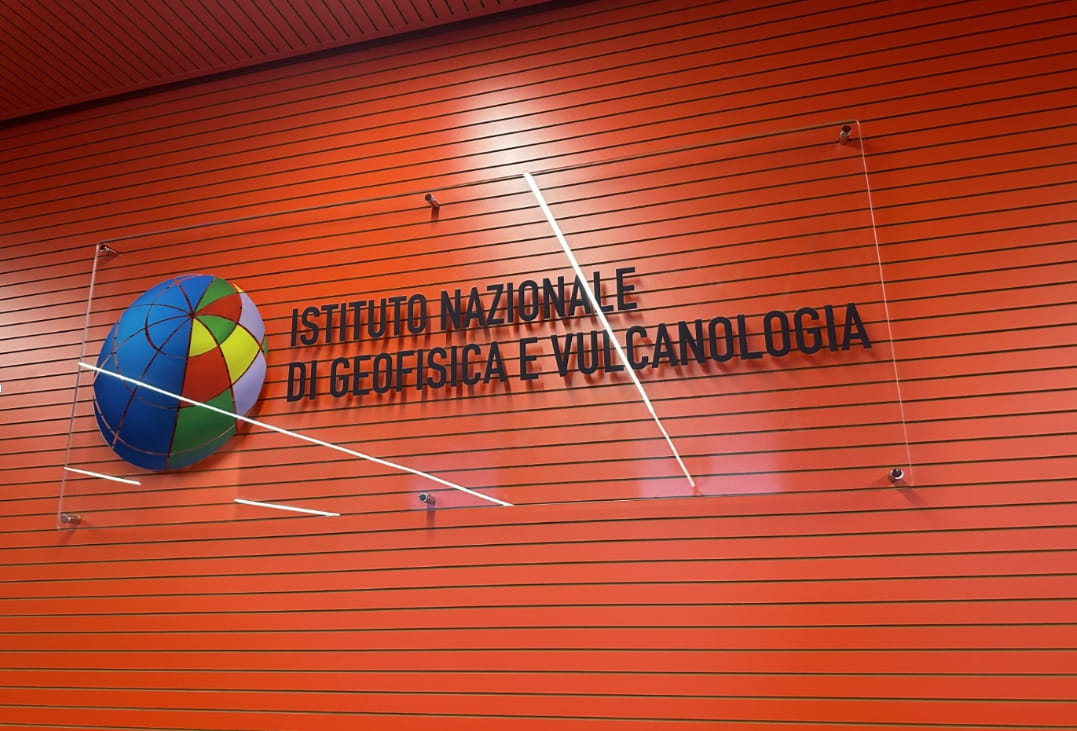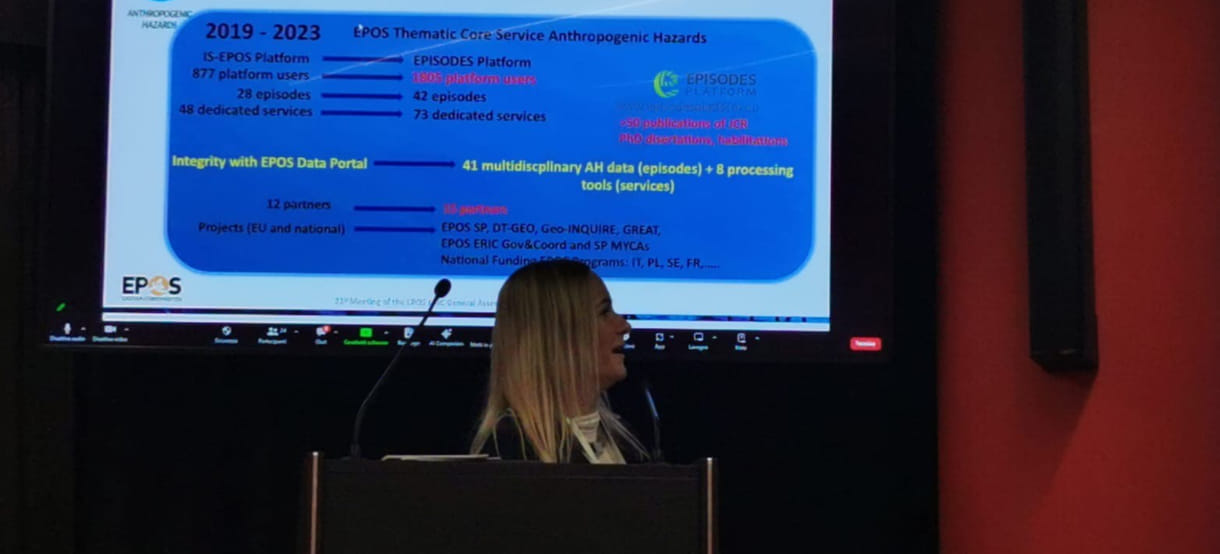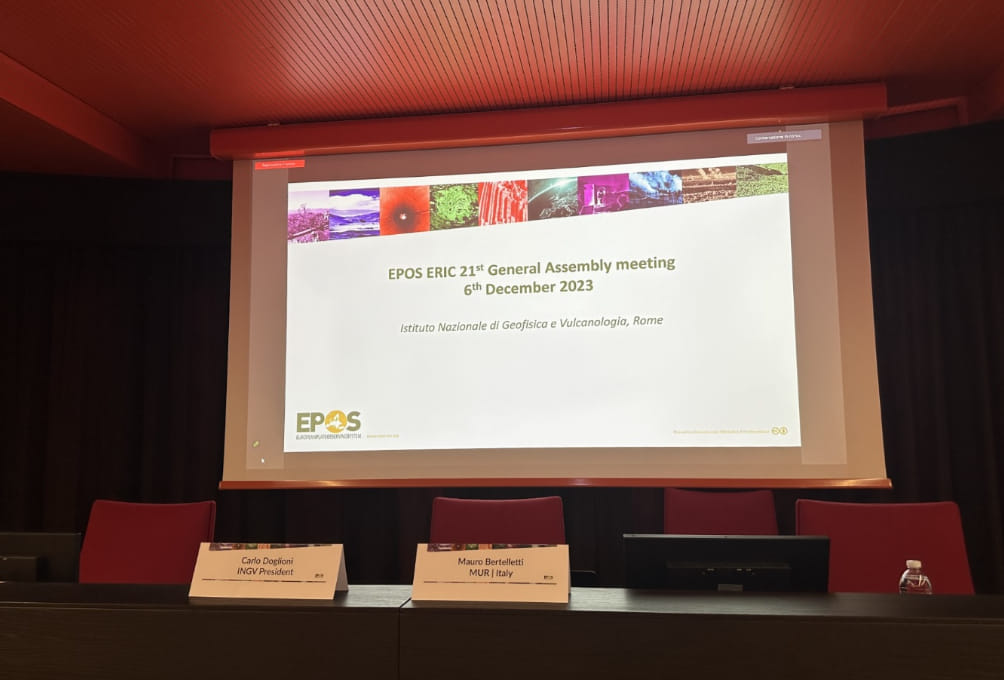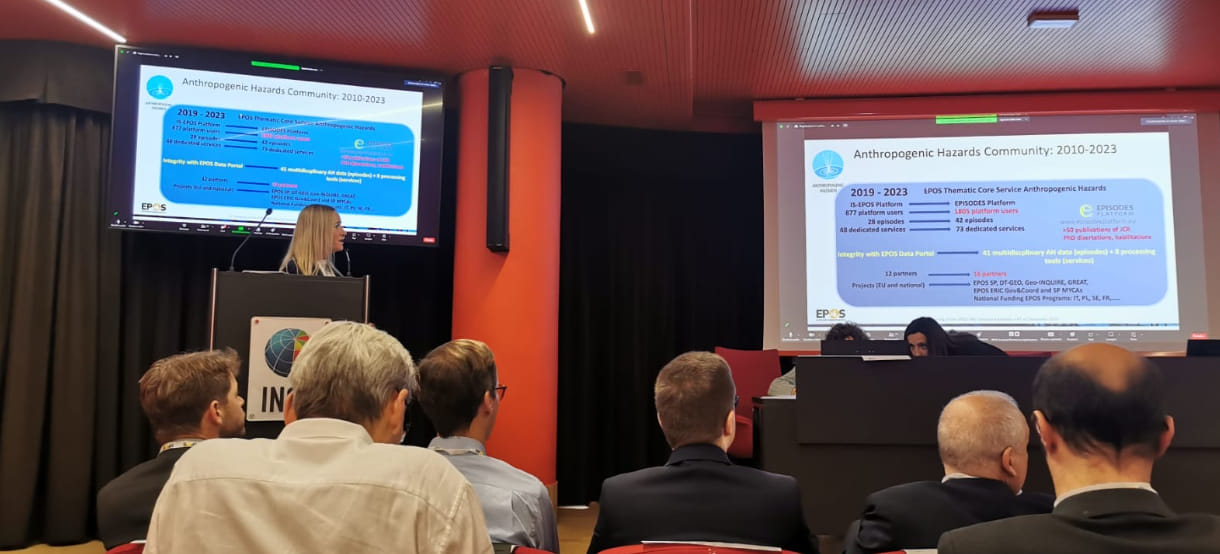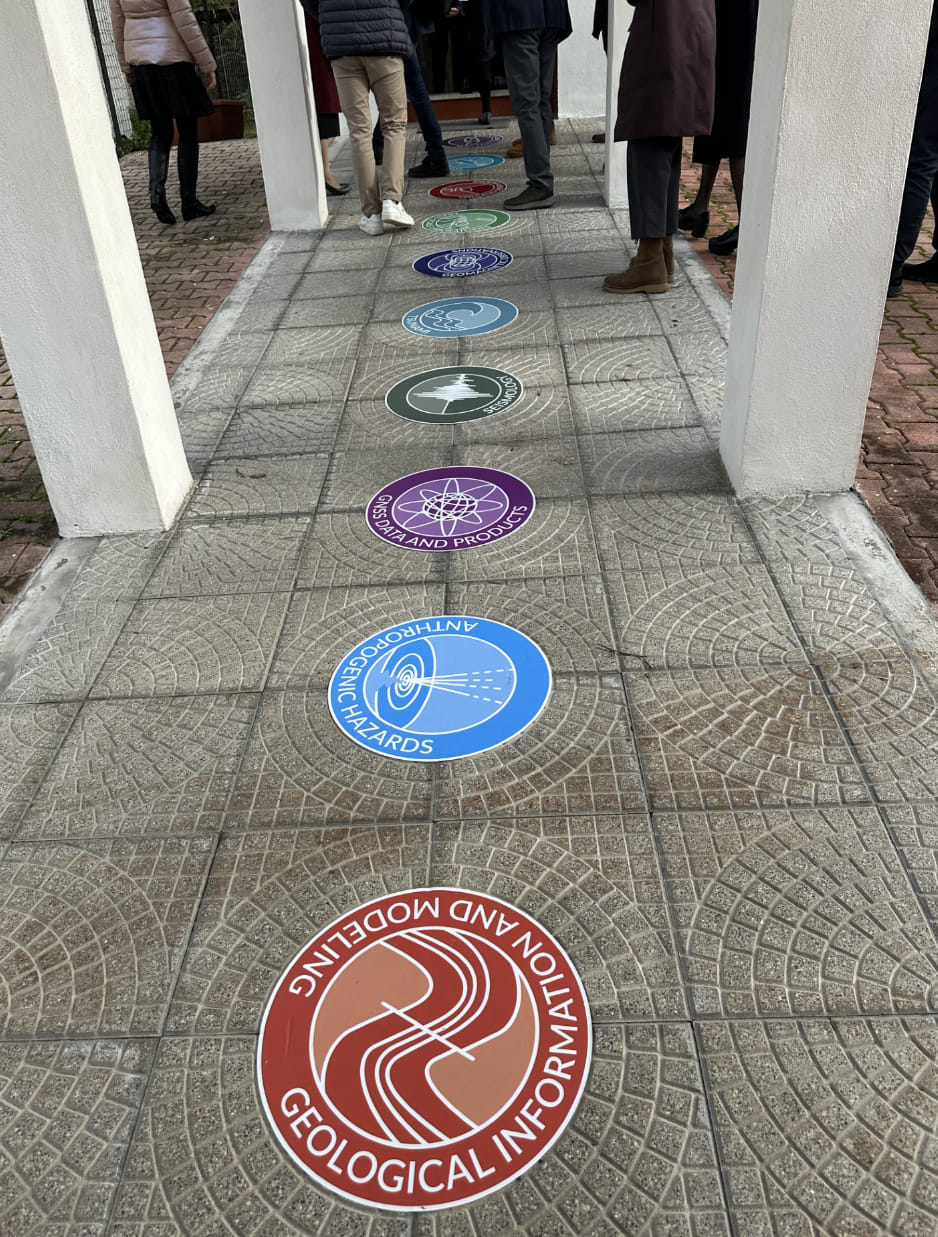27 December, 2023
The Project TCS AH closing conference is behind us!
On December 18-19, in Krakow, Poland, Institute of Geophysics Polish Academy Sciences, the TCS AH coordinator, organised the conference to close the project TCS AH (Thematic Core Services Anthropogenic Hazard) – Polish, national project funded in years 2021-2023, by the Polish Ministry of Education and Science.
The conference was attended by representatives of the project consortium members: the Institute of Geophysics Polish Academy of Sciences (IG PAS) - project leader, the Academic Computer Center Cyfronet AGH (ACK Cyfronet) and the Central Mining Institute - National Research Institute (CMI). Invited guests were also present: Deputy Director for Scientific Affairs of the IG PAS, dr. hab. Rafał Junosza-Szaniawski, Member of the Board of Experts of the Ministry of Education and Science, Prof. Anna Wysocka and representatives of the Institute of Geological Sciences of the Polish Academy of Sciences and the University of Environmental and Life Sciences in Wrocław (UPWr).
The first day of the Conference was opened by the “TCS AH” Project Manager, Professor Stanisław Lasocki, IG PAS. During that inaugural speech, Professor Lasocki drew attention to the nature of the project, practical conclusions and the scientific impact that will certainly appear during the planned meeting.
The next speaker was Anna Leśnodorska, Director of the EPOS (Thematic Core Service Anthropogenic Hazards Consortium) and Head of the TCS AH Coordination Department of the IG PAS. With her presentation "The Road to Scientific Excellence", she referred to the history of TCS AH, its tasks and to the role of EPOS. The next presentation, on Anthropogenic Hazards of EPOS in Destination Earth of the Horizon Europe Program, was led by Professor Beata Orlecka Sikora, IG PAS.
During the first day of the conference, there were also presentations of the results of the project, divided into project’s tasks:
- "Management and coordination of TCS AH" - Anna Leśnodorska, IG PAS
- "TCS - ICS Integration" - Joanna Kocot, ACK Cyfronet
- "Dissemination and promotion" - Stanisław Lasocki, IG PAS
- "EPISODES Platform and Data Centers – Joanna Kocot, ACK Cyfronet, Agnieszka Mtupa-Ndiaye, IG PAS and Grzegorz Mutke, CMI
The second day of the conference began with the topic of "The use of TCS AH infrastructure in scientific research". We could learn more about the "Artificial Intelligence Platform (EPOS-AI) in application to seismological problems" from the speech by Joanna Kocot, Ack Cyfronet and Łukasz Rudziński IG PAS. "Application of high-frequency GNSS data to anthropogenic seismicity studies" was presented by Iwona Kudłacik, UPWr, and Anna Tymińska, IG PAS. The last speaker was Anastasios Kostoglou IG PAS, who presented the topic of "Complexity of the magnitude of earthquake sequences resulting from anthropogenic activity".
At the end of the conference, Professor Stanisław Lasocki referred to the plans and tasks envisaged in the new project. He also drew attention to the practical conclusions that appeared many times during the conference. At the same time, Prof. Lasocki introduced the new consortium members:
- Director of the Institute of Geological Sciences, Polish Academy of Sciences, Professor Stanisław Mazur,
- Iwona Kudłacik, Ph.D. from the University of Environmental and Life Sciences in Wrocław
We would like to thank all the participants of the Conference closing the project and we hope to continue our cooperation.
Kinga Kaźmierczak
IG PAS
